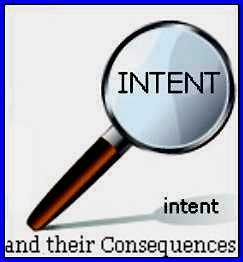Distribution of Estate Assets
S155 (1) is similar to the six-month provision that had been in section 12 of the Wills Variation act, except for the fact that it is now being changed from six months to 210 days that assets of the estate cannot be distributed without the consent of all the beneficiaries and intestate successors or a court order.
S 155(2) is a new provision that prohibits the personal representative from distributing the estate after the 210 day waiting period without a court order if a court proceeding has been commenced ,as to whether a person is a beneficiary or an intestate heir, a variation claim has been brought, or other proceedings have been brought which may affect distribution.
155(1) The personal representative of a deceased person must not distribute the estate of the deceased person in the 210 days following the date of the issue of a representation grant except
(a) with the consent of all beneficiaries and intestate successors entitled to the estate, or
(b) by order of the court.
(2) The personal representative of a deceased person must not distribute the estate of the deceased
person after the period referred to in subsection (I) without consent of the court if
(a) a proceeding has been commenced to determine whether a person is or is not a beneficiary or intestate successor in respect of the deceased person’s estate,
(b) relief is sought under Division 6 [Variation of Wills] of Part 4 [Wills], or
(c) other proceedings have been commenced which may affect the distribution of the estate.
(3) Nothing in this section
(a) affects any right or remedy against a person to whom an estate has been distributed in whole or in part, or
(b) extends any applicable limitation period.
Distribution of minor’s interest
Some of the changes in section 153 make significant changes to what previously had been section 75 of the Estate Administration act.
The changes essentially:
a) expands the requirement to transfer the interest of minors in an estate for which no trust has been created from just money to all property in which the minor has an interest;
b) provides that, for property other than money, the Public Guardian and Trustee may convert the property to money, transfer the property to the minor, or decline to accept it and recommend that the court appoint a private trustee to hold it in trust until the minor turns 19;
c) permits the court to appoint a private trustee to hold a minors interest
153 (I) Subject to subsections (2) and (3), if
(a) a minor is a beneficiary or an intestate successor, and
(b) there is no trustee or no trust created for the minor’s interest in the estate,
the personal representative, on distribution of the estate, must pay or transfer the minor’s interest in the estate to the Public Guardian and Trustee in trust for the minor.
(2) If a minor’s interest in an estate consists, in whole or in part, of property other than money, the
Public Guardian and Trustee may
(a) convert the minor’s interest in the estate to money,
(b) transfer the minor’s interest in the estate to the minor, or
(c) decline to accept the transfer of the minor’s interest in the estate and recommend to the court that a trustee be appointed to hold and administer the minor’s interest in the estate until the minor reaches 19 years of age.
(3) Subsection (I) does not apply if, before distribution of the assets of the estate, the court, on
application and with notice to the Public Guardian and Trustee, appoints a trustee to hold and administer
the minor’s interest in the estate until the minor reaches 19 years of age.




